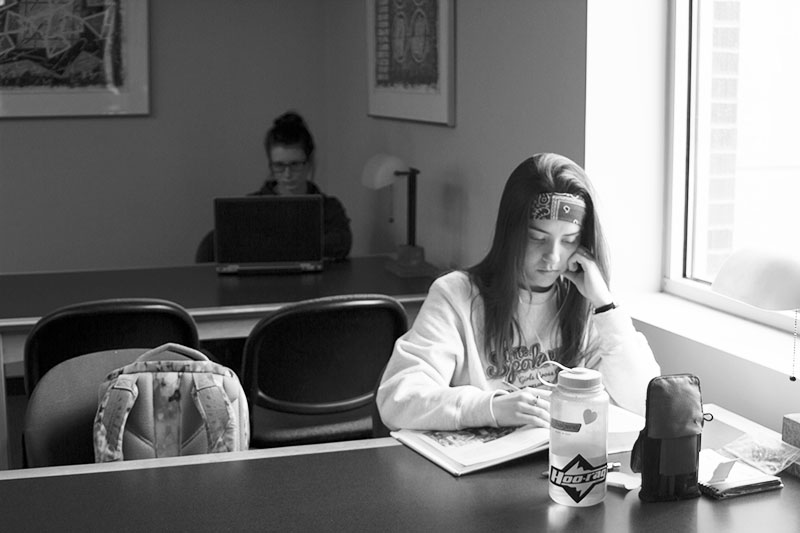
“I study more than I used to because I’m paying for it, so it matters more to me,” said SCC student Tyler Lobos.
Being a college student and having time to study can be extremely hard, as students in community college range from all ages and are either working a job, taking care of their family, or other time consuming activities.
Most people would define studying as sitting down at a desk with your textbook in complete silence for hours. However, everyone’s study habits differ from one another, so what works for one person could be the opposite for another.
SFCC student Max Miller described how his studying style differed between his classes.
“It depends on the material in the class that’s going to be on the test,” he said. “Other ones are more essay-based, like my film class. Studying isn’t quite necessary, you just need to know the content of the film.”
The environment you study in can have an effect on your studying habits. Distractions like noise from a TV playing or having friends over can disrupt your learning.
Some students are more aural learners, meaning they prefer to be around noise, or solitary learners, when one works alone.
“I make sure I’m in a quiet setting, with background music playing, and make sure I don’t have any distractions,” said Lobos. “I have to really set aside a space and a lot of time to do it or else I won’t.”
Studying traditionally in a desk works for some, but for SCC student Tristine Pitts, she feels indifferent.
“I hate doing my homework at my desk,” said Pitts. “My zone is a well lit room, very quiet music, and focused, sitting in a chair or on the sofa.”
Reviewing notes ahead of time and refreshing yourself on the content you learned in class can help. Studying in groups can work too, as you can go over missed notes or get a better understanding.
“With classmates before a quiz or test, we go over certain aspects and compare notes,” said Miller. “We hear each other’s opinions on things. It’s more of a quick thing like, ‘We have five minutes before the test, let’s talk about what we think’. That way we can have that information.”
Procrastination is the worst enemy of all when it comes to studying. Pushing off school work until a later time can be a guilty pleasure, but the realization of catching up on their studies last minute could possibly affect their grade. Some students grab as much extra credit at the end of the quarter they can get to make up for the loss.
Dedicating your studies and managing your time effectively are important. Balancing time is key to having a strong work ethic.
“People that are effective at studying don’t procrastinate. I feel like people that are like, ‘Okay I’m going to study for an hour every day in this subject’ study well.“ said Pitts.
Students also have to make the hard decision of whether or not losing sleep over an assignment or exam is worth it.
“I’m worthless if I don’t get 8 hours of sleep, so I try to use my time effectively,” said Miller. “I know if I don’t get my sleep, then I won’t remember the stuff in the morning anyways.”
Regardless of how or where one studies, putting their time to good use and knowing when to study can help you develop effective study habits.